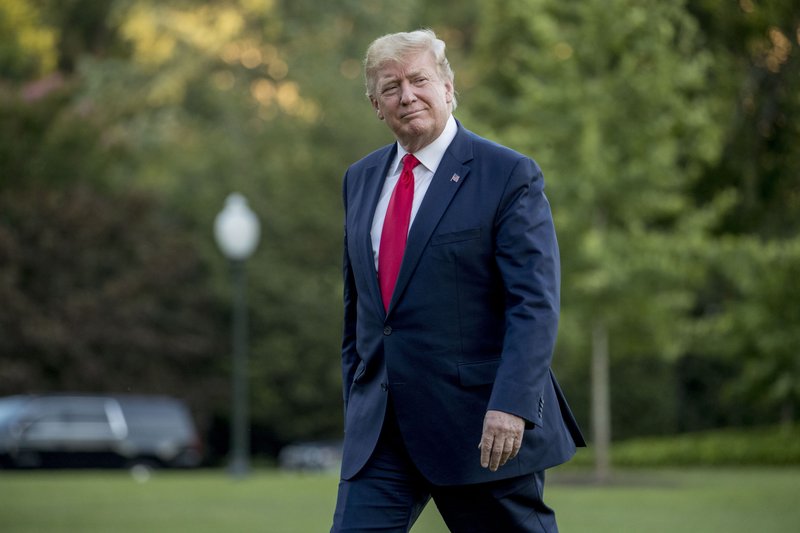WASHINGTON -- President Donald Trump on Wednesday accused China and Europe of playing a "big currency manipulation game." He said the United States should match that effort, an idea that directly contradicts official U.S. policy not to manipulate the dollar's value to gain trade advantages.
In a tweet, the president said that if America doesn't act, the country will continue "being the dummies who sit back and politely watch as other countries continue to play their games -- as they have for so many years."
The Treasury Department in May found that no country meets the criteria of being labeled a currency manipulator, though the report did put China and eight other countries on a watch list.
A country manipulates its currency when it drives down the value to make its exports cheaper and foreign imports more expensive.
As a candidate in 2016, Trump repeatedly accused China and said that as president, he would immediately label China as a currency manipulator.
However, since Trump took office, the Treasury Department has issued five reports on the subject, required by law every six months. In each report, it said no country met the criteria.
Trump's tweet seemed to have no effect in currency markets, a situation that would likely change if Treasury Secretary Steve Mnuchin began threatening to use currency manipulation to drive down the dollar's value.
The department secretary has the job of commenting on the dollar's value and also implementing interventions to buy or sell dollars in currency markets to influence the dollar's value. U.S. administrations for decades have pledged in international communiques not to intervene in currency markets for the purpose of influencing trade flows.
A weaker dollar would boost U.S. exports but could run the risk of worrying foreign investors who are helping to finance the federal government's $22 trillion national debt, causing them to move their investments elsewhere to avoid the risk of currency depreciation lowering their returns.
The U.S. hasn't intervened in foreign-exchange markets since 2011, when it stepped in to strengthen the dollar as part of an international effort after the yen soared in the wake of that year's devastating earthquake in Japan. But with Trump's repeated complaints about the dollar's strength, anything is on the table, according to the Canadian Imperial Bank of Commerce.
"The obsession with currency manipulation -- a month after the last Treasury report had different conclusions -- means we should be prepared for anything," said Bipan Rai, the bank's North American head of foreign-exchange strategy. "The Treasury hasn't intervened to weaken the dollar for decades, but we wouldn't be surprised if that changes potentially under Trump."
The euro touched its high for the day after Trump's tweet, then retreated. The president's comment did little to rattle the offshore yuan, which was roughly unchanged on the day near 6.88 per dollar. The Bloomberg dollar index is down about 0.4% this year after a 3.2% gain in 2018. But using a Federal Reserve trade-weighted measure, the dollar is not far below its strongest level since 2002, which threatens to make U.S. exports less competitive abroad.
The risk of intervention increases should the Fed decide not to ease its rate policy at its meeting this month, Rai said. Trump has staged a pressure campaign against Fed Chairman Jerome Powell in recent months, comparing the central bank to a "stubborn child" last month for not cutting rates.
Even if the Fed does lower rates in a few weeks -- a move that bond traders overwhelmingly expect -- that might not be enough for the president, according to Bank of America Corp.
"The president is likely to get his way at least for the time being," foreign-exchange strategist Ben Randol said via email.
"However, the problem arises if U.S. economic outperformance continues and the dollar proves accordingly resilient," he said. "In that case, the temptation to intervene in [foreign-exchange] markets will increase if Fed cuts don't do the trick."
Information for this article was contributed by Martin Crutsinger of The Associated Press and by Katherine Greifeld of Bloomberg News.
Business on 07/04/2019
